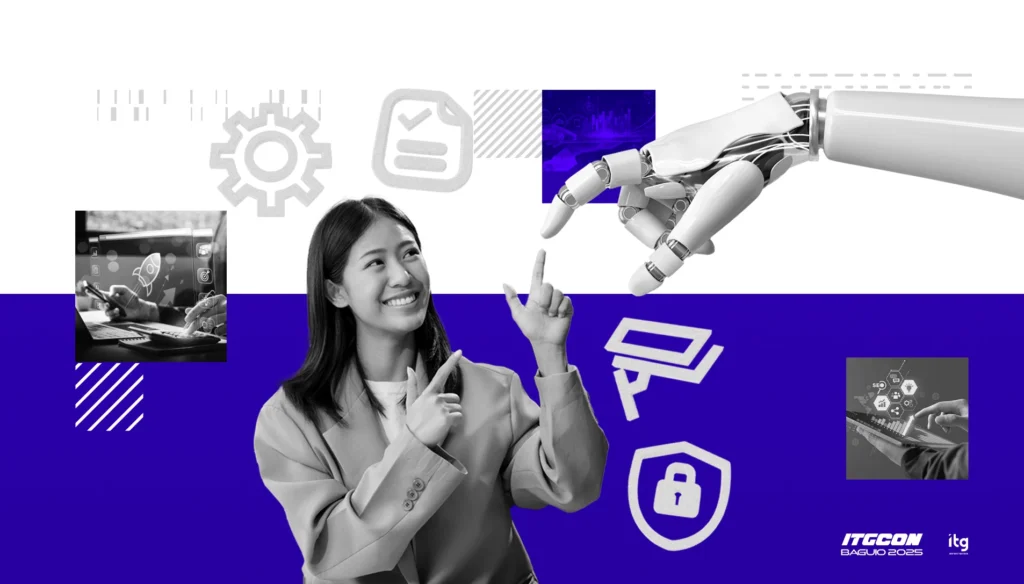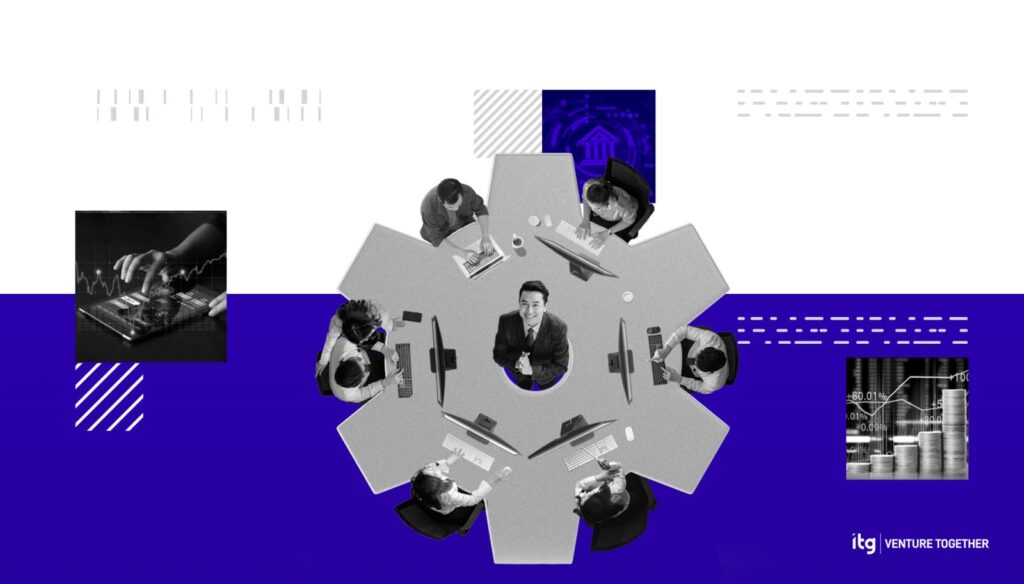
Here are the 4 Major Tech Myths and the Truths Behind It
There’s always a misconception about technology. Most people see it as part of change and the only way to the future. As technology keeps moving forward, it directly impacts all aspects of life, especially when discussing business. Bernard Marr, a Forbes writer, columnist, and book author renowned for his tech insights and future trends, shared how technology is critical to include in business; however, understanding that technology isn’t just about IT or automation but mainly about how technology can leverage your business toward digital transformation. “Businesses that manage to drive successful digital transformation understand that it requires architecting holistic changes, encompassing culture, leadership strategies, and customer experience. It also involves running a gauntlet of hype, misconceptions, and misinformation,” he said. As we deep dive into the importance of technology, particularly digital transformation for businesses, we are debunking common myths by providing facts that will give you new insights and perspectives on why technology is on your side.
Reference: https://www.forbes.com/sites/bernardmarr/2023/06/13/the-5-biggest-misconceptions-about-digital-transformation/?sh=377bcb76fa55
Complex and Complicated
Myth
One of the most common misconceptions about technology is that it’s too complex and complicated to understand, let alone incorporate into business. Ironically, technology was born and created to improve our lives for the better. But as tech innovates rapidly, it outdoes one technology from another, creating a gap of “too much of a fast-paced scenario” where no one can identify which is the newest, the best, and the most straightforward tech they can use, especially when you are aiming to elevate your business. It is, indeed, partially true retrospectively. To debunk the myth that technology is too complex and complicated, perhaps yes, but most of the time, it’s a no. It’s just a matter of how, where, and what technology you must learn and look after.
Fact
For many businesses, technology has been part of their evolution, helping them improve the quality of their products and services. Before, it was the era of industrialization, where the production of goods and services became faster and easier. Today, it’s all about digital transformation. Although technology is quite overwhelming at first, especially from an outside perspective, it’s fascinating to have knowledge about it and how it can leverage business through technology.
Dan Demers, a former Forbes Technology Council Member, shared the mindset toward technology is the first step in learning about technology, mainly digital transformation for your business. “A simple shift in mindset goes a long way. Start looking past the glam and glitz of the latest technology and figuring out how something can actually make your life easier. You’ll find the value of simplicity in the way you live from day to day, the way your business operates, and the way you communicate with others. It’s addition by subtraction. Find ways to take away problems and complexities, and you’ll find that your life — and your business — will become a whole lot better,” he said.
Reference: https://www.forbes.com/councils/forbestechcouncil/2019/10/08/current-technology-only-manages-to-complicate-things/
Liability More Than an Asset
Myth
Most small, medium, or even enterprise companies are cautious when investing in new technologies that are good for their business, even the simple upgrades of computers, adding new features for security purposes, or upgrading their subscription for their current software; all of these come with a valid reason—technology comes with a price, and more often than not, key leaders and business decision-makers are reluctant as they see tech upgrades or anything such as liabilities rather than assets and/or an investment in their company.
Fact
The real reason behind these misconceptions is the collective thought that tech in business is more of a liability than an asset and is associated with the fear of risk, especially losing instead of gaining a return in the long run. Companies tend to rely on what they used to know instead of addressing the current and recurring business issues like operation processes, accounting and financial management, and even compliance regulations. For them, upgrading to a whole new method is a risk of trial and error, and it causes them more harm than good in the long haul. However, in contrast to the outside and collective perspective, most successful businesses seize technology as a way rather than an entire solution for their overall business problems, which most organizations need to understand.
McKinsey’s 2021 Global Asset Management Survey also shared another perspective on why business leaders happened to be reserved when adding tech as part of their business plans and goals, as they had challenging experiences when it came to investing in specific technologies for their business. “Most asset managers focus their technology investments on coping with complex legacy technology estates that are increasingly expensive to maintain. But asset managers are more likely to build resiliency and meet today’s challenges if they pursue new efficiencies in maintenance spending—for example, moving on-premises technology to the cloud—and use the freed-up resources to invest in revenue growth opportunities,” they said. It’s a simple concept: if you know your problem exactly, find a solution partner, like ITG, that will understand your business needs and address your pain points and challenges with proper solutions and technology.
Replacing Traditional Work and Manual Labor
Myth
The biggest threat most businesses and employees fear is losing their business and jobs and becoming obsolete in the industry because of technology. The fear of going out of business or losing your career is a repetitive cycle that has always been evident through centuries. The only difference now is the awareness of how to adapt, evolve, and take advantage of what’s coming and include it in your current business plan while slowly but surely adapting to change. The myth will always be the mindset that technology is deemed mainly as a threat.
Fact
Over a century, businesses have evolved and adapted to achieve longevity in their respective industries, and innovation and technology have been part of it for the longest time. Although it was an accumulation of ups and downs, it’s undeniable that the employees were always part of any company’s long, successful journey, too. The recurring scene, however, is when people lose their jobs, and the position becomes obsolete at some point. But technology isn’t the one to blame. Compared to the most significant hit of global economic down, like the great recession during 2008-2009 and the 2020 COVID-19 global pandemic, technology thrived during those times.
Financial and health catastrophes cost millions of jobs to lose without telling, forecasting, and an accurate prediction of when they will hit again. But tech, on the other hand, despite its ever-fast-paced growth, always gives us glimpses of what’s coming next and what we can use in the future, such as trends and insights. Traditional work and manual labor have never been absolute; instead, they have transformed into new jobs and career opportunities, from the doer of the actual job to the analytical thinker and analyst of the process.
Also read: Shaping the Future: How Automation Empowers Your Workforce to Do More with Less
However, there is a gray area and several factors as to why many businesses fail to successfully anticipate technology in the bigger picture of their company’s growth, especially when involving employees around them. One of these is preparing its people to adapt to the technology: issues like budget concerns, lack of training, and lack of drive to intentionally include employees in the process are hindrances to harnessing the power of tech. Another thing is the generation gap, where people’s skill sets differ from one person to another, making it more difficult to bridge the lack of skills and today’s tech and business demands. On the positive side, the tech industry offers many learning resources and people with whom to connect, and there is no age limit on where and when to begin learning.
For Big Companies Only
Myth
Technology isn’t just for big companies; it is for everyone to take advantage of. Whether you are a small or medium business, the chance to flourish in this digital time and age is always possible. The thought that tech has to be big, costly, and enterprise-level grade shouldn’t be a mindset stuck for anyone doing business. There’s always the right solution that will fit your current business needs.
Fact
According to the World Economic Forums, Small and Medium Enterprises, or SMEs, can thrive in today’s tech-driven economy. Alicia Patterson-Waites, the Specialist and Strategic Integration from the World Economic Forum, shared that embracing technology would help SMEs attract talent and boost their productivity and efficiency. “Staying up-to-date with these trends is crucial for SMEs to remain competitive in the evolving digital landscape. While this may involve a significant upfront cost in the medium to long term, investments in digitisation can enable SMEs to gain valuable insights from their data, increase the efficiency of their operations, make cost savings, improve competitiveness, and create greater opportunities for scalability and growth potential,” she said.
Patterson-Waites further explained that in the coming years, digitalization will play an instrumental role for small and medium-sized businesses (SMEs), which will indeed create a positive impact on economic growth.“The latest Future of Jobs report, which surveyed 803 companies across 27 industries and 45 global economies on job trends, states that digital platforms and apps are the technologies most likely to be adopted by the organizations surveyed, and 86% of companies expect to incorporate them into their operations in the next five years,” she said. “Moreover, the digital transition of SMEs speeds up productivity growth and bridges inequalities among people, firms and locations, as well as reducing human resources, saving time and improving the overall quality of outputs.”
Like every business that started from scratch, SMEs will lay the groundwork for a future in which tech and business work together. Patterson-Waites added that the technology provides new ways to meet the actual and current needs of SMEs facing challenges. “New service-based models offer companies access to and use various technologies, infrastructure or software as services, without the need to purchase and manage the underlying technologies themselves. These models can offer more cost-effective options and allow SMEs to take advantage of access to new technologies by paying a fee or subscription for the use of these services,” she said. “Embracing smart digital strategies, sustainability practices, and talent development can enhance SMEs’ future readiness and ensure their survival in an increasingly competitive environment.”
Let’s Venture Together Today
IT Group, Inc. (ITG) has been the leading IT Solution Partner in the Philippines and the ASEAN region. We’re an ISO 9001:2015 Certified company with four regional offices located in the Philippines, Indonesia, Singapore, and Malaysia, helping 200+ clients across the ASEAN region on their digital transformation journey and has a solid portfolio of 250+ successful projects.
For over 20 years of expertise, ITG has been your leading technology partner for system-wide innovative solutions to accelerate your business plans and goals, delivering seamless integrations and processes, from Business Management Solutions, IT Management, Integration & Automation, and Enterprise Data Management to IT Infrastructure. We help clients across the region experience digital transformation in their business, co-creating and co-owning solutions tailored to their business needs.
ITG takes pride in helping businesses from various sectors and industries. Whether you are a small, medium, or large company, we can help you with your digital transformation journey.
Shaping the Future of Technology: The Impact of ManageEngine, Saile, SenseTime, and Cyrebro on Digital Transformation
Shaping the Future of IT Management Software and Digital Transformation June 27, 2025 | Blog In ...
Enhancing Supply Chain Business Continuity with ITG’s Cloud-Native Logistics and Supply Chain Management Platform
Enhancing Supply Chain Business Continuity with ITG’s Cloud-Native Logistics and Supply Chain ...
Streamlining Corporate IT: ManageEngine for Enterprise Service Management and Employee Productivity
Transform Your Enterprise Service Desk with ITG and ManageEngine June 20, 2025 | Blog In today’s ...



